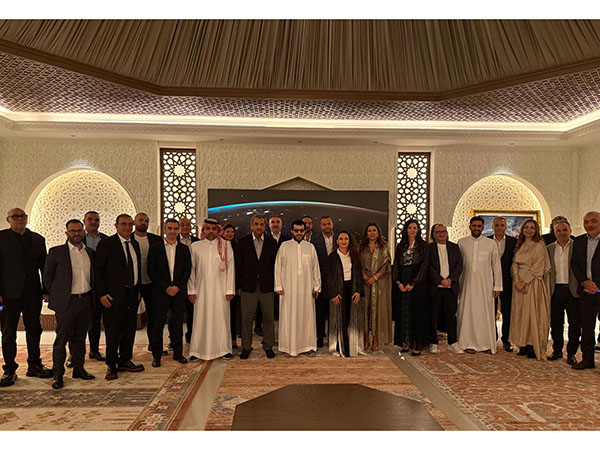News - News In Brief
New Survey Predicts Greater Demand for Jobs and Skills in the Future
October 15, 2020

More than three in four recruiters believe that the hiring process is likely to change in the future, according to new research by Middle East job site Bayt.com and YouGov, the global online market research company.
'The Future of Work in the MENA 2020' survey reveals a variety of insights on the skills employees must have to be competitive, the most significant changes driven by technology, the most effective ways to hire and develop talent and the future of job seeking. Interestingly, 85% of respondents feel either confident about the future of work and believe they will be successful, or they feel excited and see a world full of possibilities.
Job Skill Requirements
MENA companies favor employees with both emotional and technical skills. Results show that while soft skills such as time management (97%), communication (96%) and teamwork (94%) are considered important today, more than half of the respondents (54%) believe that both technical and soft skills will be equally important in the future. On the other hand, nearly two in five respondents (38%) believe that only technical skills will be more important while 9% believe that only soft skills will be more important.
Organizations in the region are focusing on strategically recruiting and retaining for a skilled workforce. According to respondents, technology/computer skills (94%), communication (91%) and creative thinking (91%) will be the top skills for jobseekers in the future, followed by time management (90%), job-specific skills (89%), strategic vision (88%) and global mindset (86%).
From a hiring perspective, previous job experience (88%) and CV presentation (82%) are considered as the most important factors in finding qualified people today. Degree specialization (77%), diversity (77%) and cultural fit (72%) also play a major role in hiring decisions.
Respondents say that previous job experience (85%) will continue to be the top most factor influencing hiring decisions in the future, followed by degree specialization of the candidate (79%) and the CV presentation (77%).
“The future of work will bring technology and people together to drive experiences and intelligence in the hiring process. In these experiences, job seekers are looking for agility in how and where they work,” said Ola Haddad, Director of Human Resources at Bayt.com. “The Future of Work in the MENA survey has garnered fascinating results on current and impending workforce issues, helping us gain insight into the future of work.”
Future of Job Roles
Organizations of the future will increasingly use technology to create extraordinary workplace experiences and do things previously impossible. As technology is augmenting and enhancing jobs in the MENA, 75% of the survey respondents believe that the demand of software engineers is likely to increase in the future along with demand for doctors (74%), biomedical engineers (72%) and data analysts (71%).
Company management must take a leadership role in understanding the future of work and how to create a culture which is personalized, embraces career mobility and provides easy access to on-demand learning. Nearly half of the respondents believe that getting transferred to another job or department when the demand for current job role decreases should neither be easy nor difficult. Employers in the region could grow and broaden employee’s skills, not just through formal learning but by being exposed to a myriad of new jobs and roles inside the company to increase their engagement levels while stemming job hopping.
Unsurprisingly, a whopping 7 in 10 respondents believe that technological factors (such as digital transformation, automation, artificial intelligence, etc.) are most likely to change the nature of work in the future.
Perception of Recruiters
When it comes to attracting and retaining the right talent to succeed in the digitalized era, online job sites are currently the most used by recruiters today (60%) and are considered as the most effective source to recruit candidates (27%).
Compared to traditional methods, more than 9 in 10 recruiters (91%) believe that online recruitment will continue to facilitate the recruiting process in the future – a whopping 92% of the recruiters agree that online job sites and professional platforms will be the most popular recruiting platforms. On the other hand, 87% agree that managing the employer’s brand and reputation will be critical for attracting talent.
Recruiters have huge hopes for AI and technology in the hiring process, with 86% agreeing that response time to applicants is likely to improve using Applicant Tracking Systems (ATS), and 82% believing that the future of hiring will rely more on automation, artificial intelligence, and analytics.
Job Seeking in the Future
With an increased need for reliable information from the frontlines of change – respondents believe that online job boards and career websites (60%) as well as social and professional networks (57%) will be the most reliable job seeking sources in the future. Only about one third of the respondents (36%) consider company websites to be reliable in the future.
Zafar Shah, Research Director, Data Services at YouGov said: “Throughout the MENA region, organizations share common challenges in terms of managing the hiring process within the evolving work landscape. A particular focus of our new survey with Bayt.com is arriving at a better understanding of the potential of new technologies, methods and skills that will vastly improve the job quality and productivity of professionals in the future.”













